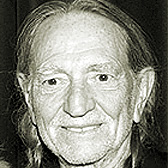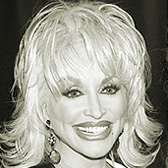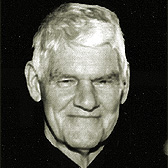
"The Red Headed Stranger" - songwriter, singer, poet, actor and activist
Willie Nelson
InducteeVersatile catalog includes country, jazz, pop, R&B and folk hits; more than 350 songs including "Crazy" and "Funny How Time Slips Away"
In his long and eclectic career, Willie Nelson has recorded country music, standards, gospel, and much more. With an impressive string of albums--the first released in 1965--and a memeber of the Highwaymen (with country legends Waylon Jennings, Kris Kristofferson and Johnny Cash) Willie Nelson pioneered the "Outlaw" country movement and has left his mark on the American musical landscape.
Willie grew up in the farming country of Central Texas working alongside migrant and tenant farmers. “I was raised and worked in the cotton fields around Abbott with a lot of African-Americans and a lot of Mexican-Americans, and we listened to their music all the time. I guess that’s why I was influenced a lot by those around me -- there was a lot of singing that went on in the cotton fields,” said Nelson.
When, at a tender age, he began playing in honky-tonks, where the jukeboxes were ruled by the Western Swing, jazz and jump blues of Bob Wills and his Texas Playboys. “I’ve always sung “Milk Cow Blues”,” Nelson continued, “It was one of the first songs I played when I started working in beer joints. From that, I really got into the blues, and learned a lot of other blues songs. Then, later on, I would visit other beer joints around Texas -- one time I used to deliver laundry and linens, so I made it to a lot of beer joints, and I heard a lot of great music on those jukeboxes. I got really addicted, and then I started trying to find out where all this good music could be found on the radio.”
That lifetime of appreciation figures heavily in the selection of songs that Nelson has personally selected for his albums. Born in 1933 in the tiny Central Texas farming community of Abbott, Willie Nelson grew up in a world permeated with music: The gospel songs of the grandparents who raised him; the blues and Mexican corridas that eased the labor of the cotton fields; the country and Western Swing hits filling the airwaves from Nashville and Fort Worth...and the inner music that percolated up ceaselessly inside of him. Melodies are easy, he says of his songwriting; if he needs one, he just plucks one out of the air. The air, he says, is full of music.
Since waxing his first single in 1957, he has given birth to concept albums (his first, Yesterday’s Wine, as recorded in 1971), gospel albums, jazz albums, movie soundtracks, myriad duet projects (at Willie has recorded with everyone this side of Regis Philbin), Christmas albums, live albums, and an album of standards (1978’s Stardust) which has become a standard in itself.
His around-the-beat blues-flavored vocals set the Nashville musical establishment on its ear. His spare-sounding breakthrough album, 1975’s Red-Headed Stranger, went so against the Music City grain of the day that his record company president first thought Nelson had presented him with a demo. His early-70's merger of the traditional country and long-haired hippie audiences was called suicidal at the time, and has since come to be regarded as visionary. Outside the recording studio, Nelson established himself as a champion for the family farmer with his annual Farm Aid concerts. His Fourth of July picnics have for the past quarter-century served as a rite of musical passage in Texas. His films include The Electric Horseman (with Robert Redford and Jane Fonda), Songwriter (with Kris Kristofferson), Wag the Dog (with Robert DeNiro and Dustin Hoffman), and many others.
Today, Nelson divides his time between the road and his beloved Pedernales recording studio/golf course in the Hill country outside of Austin, Texas.
In 1998, Nelson was honored with the National Academy of Recording Arts and Sciences Living Legends Award and has been inducted into the Country Music and Songwriters Halls of Fame. He has been nominated for multiple Grammys (won 8) and his song "On the Road Again" was nominated for an Oscar for Best Song in a Motion Picture.
Often asked when he plans to retire, Nelson invariably replies with a smile, “All I do is play music and golf -- which one do you want me to give up?





